Austin Herd Building Bridges, Gearing Up For Turnaround Year
Austin Herd Building Bridges, Gearing Up For Turnaround Year
The Austin Herd are looking for a bounce back year in 2020, and community engagement is at the forefront of their efforts.
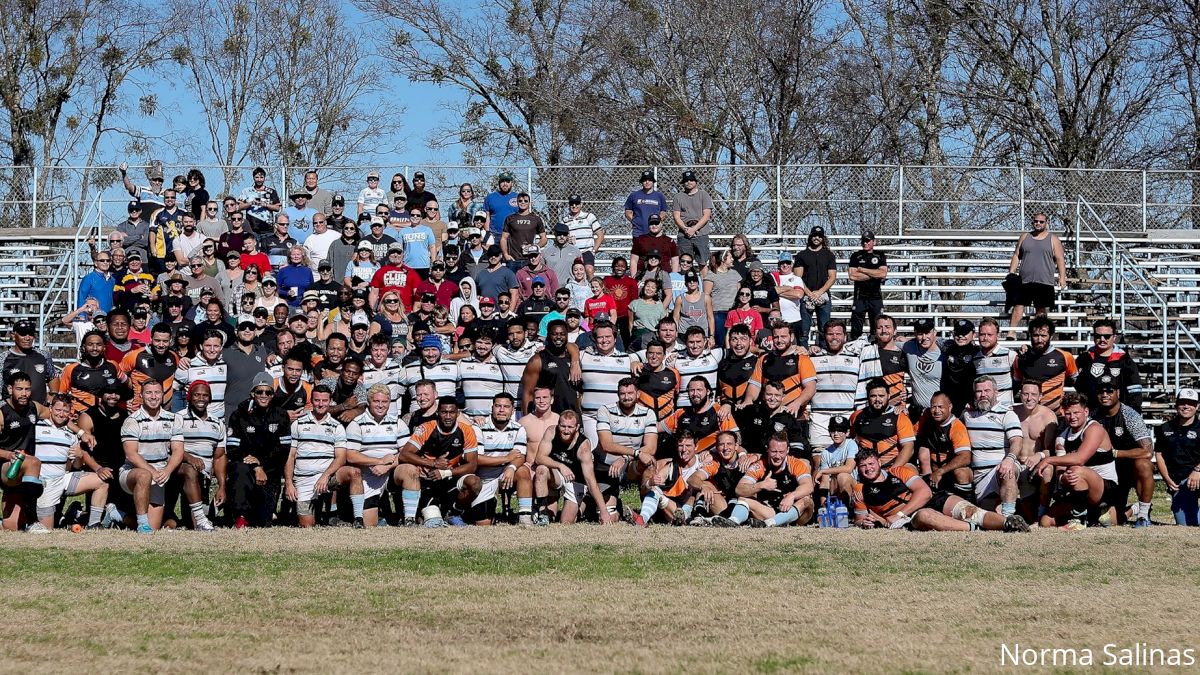
Following a frustrating 2019 campaign that saw the Austin Herd (formerly the Austin Elite) go winless in 16 games, fans, players, and coaches alike are eager for a fresh start in 2020.
Life in the MLR is tough. After coming within one win of the playoffs in the inaugural 2018 season, Austin found itself falling behind in Year 2, and there are a number of reasons one could point to as to why.
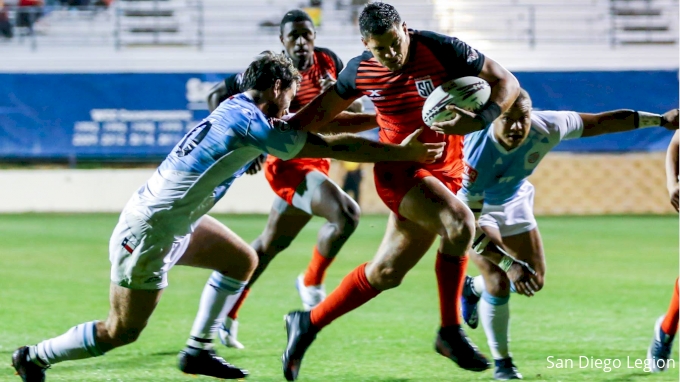
However, upper management has changed hands, and steps have been and still are being taken to address the organizational leaking points.
Here's a look at how the Herd are attempting to rebuild bridges and fix some key issues that plagued them in 2019:
Who's calling the shots
In Years 1 and 2, the Herd were both owned and operated by the trio of Richard Osborn, Chris Bugge, and Thierry Daupin. All three are members and former players of the Austin Huns Rugby Club, one of two Austin-based club teams in Texas.
Between the three of them, they took a huge leap and transformed the Huns from a club team into a semi-professional outfit. The project, which began and ended in 2017, lasted just one year.
High-pedigree coaches like Eugene Eloff, Danie de Villiers, CJ de Wet, and Pedrie Wannenburg were brought in, and the prospect of a pro contract brought in some young American up-and-comers like Hanco Germishuys, Zinzan Elan-Puttick, and Mason Pedersen.
The Huns went on to win their first and only national championship that year, but there were different visions for the future of the club and not everyone saw eye to eye.
Ultimately, the professional portion of the Huns left to become the Austin Elite, and the team entered into the inaugural MLR season.
Year 1 went fairly well, with the team falling just one win shy of the playoffs after losing close games to Seattle and San Diego at the tail-end of the season.
In Year 2, however, things seemed to come apart. The team lost each game, many of them close battles, en route to an 0-16 year and a call for some changes to be made.
With the goal of building more of a positive, family-like culture, the keys were handed over to former USA Eagles Todd Clever and Andrew Suniula to start making the decisions.
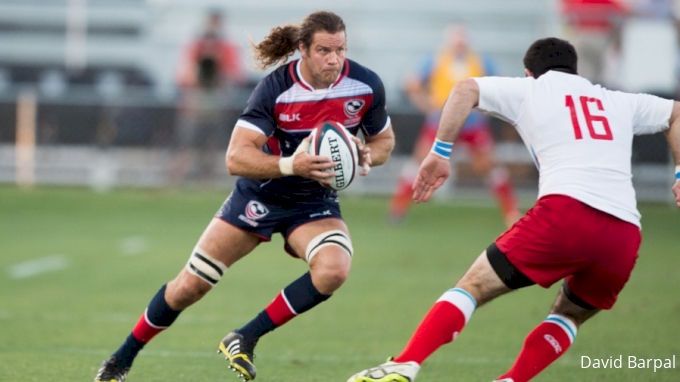
The ownership group also made the decision to grow the scope of the management team and disperse the workload to allow more hands on deck.
Since taking charge, Clever and Suniula have brought in an entirely new coaching staff, led by head coach and Auckland native Brent Semmons, whose background and specialty has been developing the Auckland rugby academies and building player pathways to the next level.
Some exciting new players have been brought in as well, like former All Black Frank "The Tank" Halai, Lindenwood 1st-Team All Americans Wesley White and Michael De Waal, Tonga international Dan Faleafa, and Samoa international Potu Leavasa, among others.
Connecting the grassroots
At the heartbeat of any great rugby structure is strength in the grassroots. As alluded to above, new coach Brent Semmons is a master of growing players, and it's both his and the organization's aim to nurture and develop each and every level of rugby in Central Texas.
With an estimated 33 established men's and women's, boys and girls rugby organizations within a 100 mile radius of Austin, the Herd are eager to foster the growth of each and every one of them.
They plan to be present at the practices and the games of all the teams, with a dedicated effort to spread knowledge and assist with skill development across numerous disciplines.
The mission is to bring everyone to the same table. The Herd want to encourage everyone in Central Texas to celebrate the successes of the other clubs in the region, with the mindset that they're all in it together.
From the youth level, to the high school level, on up through college and into the men's and women's clubs, the Austin Herd are striving to be a more positive impacter than before.
Furthermore, the Herd look forward to providing U-19 and U-23 select sides for kids in the region to earn a place on. The aim is for the squads to get an opportunity to play some curtain-raising games before the Herd take the field in 2020.
Local high school teams will also get a chance to play in a match on the field before some of the Herd games as well.
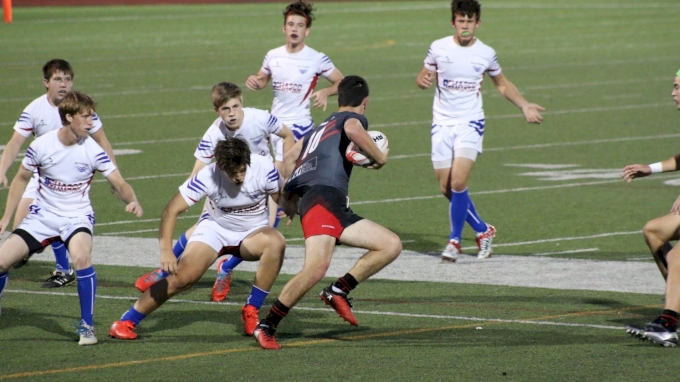
In a perfect world, many of the players who come up through the grassroots pathways will become future Herd players, but the primary objective of connecting with the grassroots is to develop players who fall in love with the game and become life-long participants of the sport.
Finding a place to play
During Year 1, the Elite had a very nice home field to play on in the Round Rock Multipurpose Complex. There was enough seating for about 2,000 fans, and the venue was beautiful.
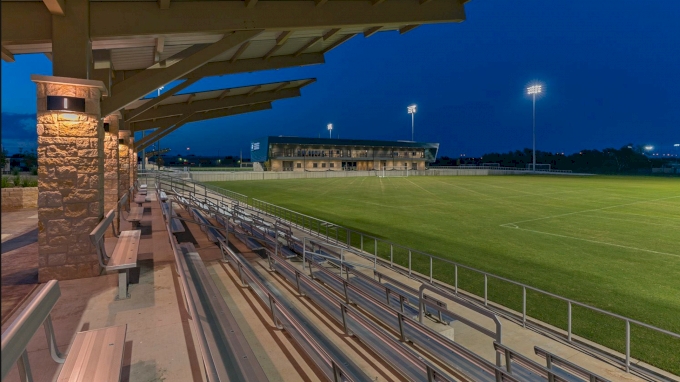
Unfortunately, they were forced to move in 2019 and play their games at the Dell Diamond, the stadium of the AAA baseball team Round Rock Express. The venue was slightly awkward for a rugby match, and became much less popular than the MPC; attendance dropped off considerably.
Additionally, the scheduling of the games wasn't particularly ideal. Most of the home games were front loaded during the first half of the season, so the weather was constantly dodgy. For 2020, the home fixtures will be evenly dispersed and game times more manageable for fans.
With an anticipated return to the MPC, the home atmosphere should improve this season, as the boys get to play in a more traditional rugby stadium, hopefully in front of many more fans.
Growing the fanbase
Arguably one of the biggest things holding the Elite back over the past two years has been the overall lack of fan support.
The aforementioned split between the Huns and the Elite certainly didn't help.
Additionally, there didn't appear to be a ton of outreach from the Elite to the rugby community in general. The tough results on the field meant the organization spent most of its time focusing inward, losing touch with the original plan to extend its reach off the field.
The fanbase had a hard time growing from within, and thus ticket sales and word-of-mouth promotion took a hit.
But, under the new leadership led primarily by Andrew Suniula, the Herd have made enormous strides to extend their reach to the whole community.
Suniula has put in a lot of his own time and energy to engage with local clubs -- the Austin Blacks, Austin Huns and the Austin Valkyries in particular -- to help with skills and coaching, and to simply hang out and try to get to know the men and women that play rugby in the area.
Players from both men's teams have also been invited to train with the Herd during their preseason to grow and improve, while also taking nuggets of advice and tips back to their own clubs.
A bite to eat after a great first run out!
— Austin Herd (@austinherdrugby) January 4, 2020
The @AustinHunsRugby put on a solid showing in preparation for their cup match against the Dallas Reds. #jointheherd #UpTheHuns pic.twitter.com/8A3oCKK1AF
The fluidity between the club and professional teams is already helping to establish stronger ties between all levels of rugby in the area.
Over this past weekend, the Herd took on the Huns in a scrimmage, which was followed by a social at the pitch.
Iron sharpens iron. ⚔️
— Austin Herd (@austinherdrugby) January 5, 2020
The boys had their first scrimmage of the preseason with @AustinHunsRugby as both clubs prepare for the season ahead. #jointheherd
.
.
?: @nlsalinas12 pic.twitter.com/6j24cBdRiN
The Herd won the game 57-12, with both sides benefiting from the preseason hit-out before the real season heats up.
Perhaps more importantly, though, were the post game activities. The Herd players and coaches stuck around at the fields for hours after the game, eating and socializing with the Huns fans, coaches, and players.
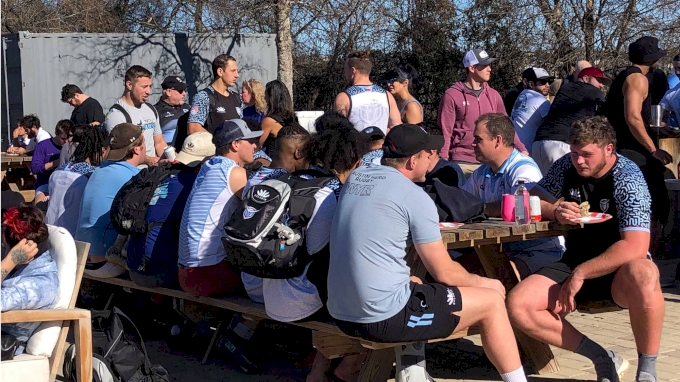
It may not seem like much, but in years gone by the engagement between the pro side and club sides had been far less existent. On Saturday there was a genuine feeling of mutual respect among everyone and a desire to see both teams succeed at both levels.
In three weeks time, the Herd will scrimmage with the Austin Blacks (three times D1 runners-up in the past five years) and it's sure to be another great day of community engagement for Austin rugby.
Winning games
Ultimately, what will put fans in the seats, keep the organization alive, and attract more players though is winning games on the field.
Some early-season victories will be extremely important to build momentum and interest as the year progresses.
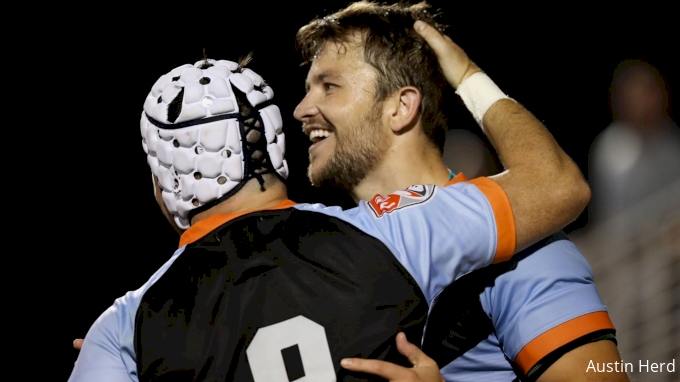
Of course, as the MLR gets older, the teams continue to get better.
A few of the biggest names in the rugby universe are set to join the MLR fold in 2020, making it even tougher to pick up wins than before.
Some new teams have also entered the league in the form of the New England Freejacks, Rugby ATL, and Old Glory DC.
There's certainly still work to do, but the Herd have seemed to step up their game off the field. The structures surrounding the team are stronger than before, but at the end of the day what matters most is the on-field product.
It may take time; it may not. But with a new name, a new culture, and a new identity, the Austin Herd are due for a bounce back year, something everyone would like to see.